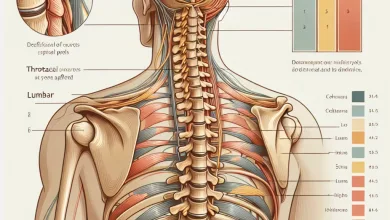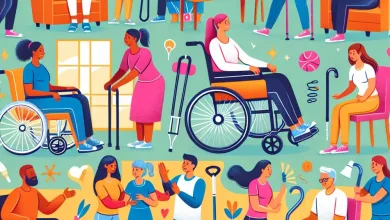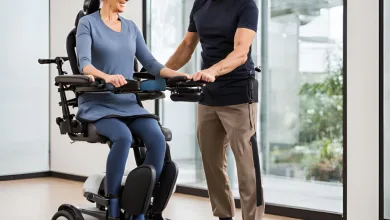Emotional Support for Wheelchair Individuals: A Comprehensive Guide

Table of Contents
Nurturing Mental Well-being on Wheels
Living with a disability poses unique challenges, particularly for those who rely on wheelchairs for mobility. While physical adaptations are crucial, it’s equally important to focus on emotional support for wheelchair individuals. This blog explores the various facets of emotional well-being, mental health support, and coping strategies that can significantly enhance the quality of life for wheelchair users. In this comprehensive guide, we’ll explore various aspects of mental health support for disabled individuals, focusing on practical strategies, resources, and insights to help you or your loved ones thrive emotionally.
Understanding the Emotional Landscape
Before we dive into specific support strategies, it’s crucial to acknowledge the complex emotional terrain that wheelchair users often navigate. Some everyday experiences include:
- Grief and loss
- Anxiety about independence and accessibility
- Depression and feelings of isolation
- Frustration with societal barriers
- Self-esteem and body image concerns
Recognizing these emotions as valid and common is the first step towards seeking appropriate support. Remember, you’re not alone in these feelings; there’s no shame in reaching out for help.
The Power of Professional Support
One of the most effective ways to address emotional challenges is through counselling for wheelchair users. Professional therapy for individuals with disabilities can provide a safe space to explore your feelings, develop coping strategies, and work towards emotional well-being.
Here are some benefits of seeking professional help:
- Specialized understanding: Therapists experienced in working with disabled individuals can offer insights tailored to your unique situation.
- Objective perspective: An outside viewpoint can help you see challenges and solutions in a new light.
- Skill development: Learn practical techniques for managing stress, anxiety, and other emotional hurdles.
- Confidentiality: Share your thoughts and feelings without judgment or fear of burdening loved ones.
When looking for a therapist, consider asking about their experience with disability-related issues. Many now offer virtual sessions, making psychological support for individuals who use wheelchairs more accessible than ever.
Peer Support: You’re Not Alone
While professional help is invaluable, there’s something uniquely comforting about connecting with others who truly understand your experiences. Support groups for wheelchair users can be a fantastic source of emotional sustenance. Here’s why:
- Shared experiences: Hearing others’ stories can validate your own feelings and challenges.
- Practical tips: Learn from peers about navigating daily life, from emotional hurdles to practical solutions.
- Friendship and community: Build relationships with people who get it, reducing feelings of isolation.
- Empowerment: Seeing others thrive can inspire hope and motivation in your journey.
You can find support groups through local disability organizations, hospitals, or online platforms. Don’t hesitate to try a few different groups to find the right fit for you.
Building Emotional Resilience
Emotional resilience for disabled individuals is like a muscle – it grows stronger with practice. Here are some strategies to cultivate resilience:
- Mindfulness and meditation: These practices can help you stay grounded in the present moment, reducing anxiety about the future or regrets about the past.
- Gratitude journaling: Regularly noting things you’re thankful for can shift your focus to the positive aspects of life.
- Setting achievable goals: Celebrate small victories to build confidence and motivation.
- Self-compassion: Treat yourself with the same kindness you’d offer a friend facing challenges.
- Adaptive hobbies: Engage in activities that bring joy and a sense of accomplishment, adapting as necessary to suit your abilities.
Remember, building resilience is a journey, not a destination. Be patient with yourself as you develop these skills.
Navigating Relationships and Social Support
Your social circle can be a powerful source of emotional support for wheelchair individuals. However, relationships may need some adjustment as you navigate life in a wheelchair. Here are some tips:
- Open communication: Be honest with your needs and feelings with friends and family.
- Educate loved ones: Help them understand your challenges and how they can best support you.
- Maintain independence: Encourage helpers to assist only when necessary, preserving your autonomy.
- Expand your circle: Seek out new friendships through shared interests or disability-focused groups.
- Online communities: Connect with others worldwide through social media or forums dedicated to wheelchair users.
Building a solid support network takes time, but the emotional benefits are immeasurable.
Coping with Stigma and Societal Barriers
Unfortunately, wheelchair users often face societal stigma and physical barriers that can take an emotional toll. Here are some coping strategies for wheelchair users dealing with these challenges:
- Self-advocacy: Speak up for your rights and needs. Your voice matters.
- Education: When appropriate, educate others about disability issues. Many people need to be made aware.
- Choose your battles: Let some things slide to preserve your emotional energy, which is okay.
- Find your tribe: Surround yourself with supportive, understanding people who value you for who you are.
- Celebrate your identity: Embrace disability culture and pride. Your wheelchair is part of you, not a limitation.
Remember, the problem lies with societal barriers, not with you. Others’ misconceptions do not diminish your worth.
The Role of Physical Health in Emotional Well-being
While our focus is on emotional support for wheelchair individuals, it’s essential to recognize the interconnection between physical and mental health. Taking care of your body can significantly impact your emotional state. Consider these aspects:
- Regular exercise: Adapted physical activities can boost mood and reduce stress.
- Proper nutrition: A balanced diet supports both physical and mental health.
- Quality sleep: Establish a consistent sleep routine to improve emotional resilience.
- Pain management: Work with healthcare providers to address chronic pain, which can affect mood.
- Regular check-ups: Stay on top of your health to prevent additional stressors.
You’re laying a strong foundation for emotional well-being by tending to your physical needs.
Exploring Creative Outlets
Engaging in creative activities can be a powerful form of emotional expression and healing. Here are some ideas to explore:
- Art therapy: Painting, drawing, or sculpting can help process complex emotions.
- Writing: Journaling, poetry, or storytelling can provide an outlet for your thoughts and feelings.
- Music: Listening to or creating music can be incredibly therapeutic.
- Adaptive sports: Many sports can be adapted for wheelchair users, offering physical and emotional benefits.
- Photography: Capture the world from your unique perspective.
Don’t be afraid to try new things – you might discover a passion that is vital to your emotional support toolkit.
Leveraging Technology for Support
In today’s digital age, technology offers numerous avenues for mental health resources for disabled individuals. Here are some ways to use tech to your advantage:
- Mental health apps: Many apps provide guided meditations, mood tracking, and coping strategies.
- Teletherapy: Access counselling services from the comfort of your home.
- Online support groups: Connect with peers worldwide through virtual meetings.
- Accessibility apps: Use apps designed to make daily life easier, reducing stress and frustration.
- Educational resources: Access information about mental health and disability rights online.
While technology shouldn’t replace human connection, it can be a valuable supplement to your support system.
Advocating for Accessible Mental Health Services
As a wheelchair user, you may encounter barriers in accessing mental health services. Here are some ways to advocate for better accessibility:
- Speak up: If you encounter inaccessible services, let providers know.
- Research: Look for mental health professionals who specialize in or have experience with disability issues.
- Ask for accommodations: Don’t hesitate to request what you need, whether it’s a ramp, sign language interpreter, or alternative therapy methods.
- Support disability rights organizations: Get involved with groups working to improve mental health access for disabled individuals.
- Share your story: Your experiences can help raise awareness and drive change.
Remember, you deserve access to quality mental health care. Your advocacy can make a difference for you and others in the disability community.
Celebrating Progress and Milestones
In the journey of emotional well-being for disabled individuals, it’s crucial to acknowledge and celebrate your progress. Here are some ways to recognize your growth:
- Keep a progress journal: Note improvements, no matter how small.
- Share victories: Let your support system know when you’ve overcome a challenge.
- Reward yourself: Treat yourself when you reach a goal or milestone.
- Reflect on your journey: Periodically reflect on how far you’ve come.
- Pay it forward: Use your experiences to help and inspire others.
Celebrating your progress reinforces positive emotions and motivates you to continue your journey of emotional growth.
Pros and Cons of Different Emotional Support Strategies
Let’s take a look at some of the pros and cons of various emotional support strategies for wheelchair users:
Pros and Cons of Various Emotional Support Strategies for Wheelchair Users
| Strategy | Pros | Cons |
| Professional Therapy | – Specialized expertise – Confidentiality – Structured approach to healing – Objective perspective – Can address deep-seated issues | – Can be expensive – May take time to find the right therapist – Potential stigma – Requires time commitment – May not be fully accessible for all |
| Peer Support Groups | – Shared experiences – Cost-effective or free – Reduce feelings of isolation – Practical, lived-experience advice – Opportunity for socializing | – Lack of professional guidance – Potential for negative group dynamics – May focus too much on problems – Confidentiality concerns – Scheduling conflicts |
| Self-help Strategies | – Can be done anytime, anywhere – No cost – Builds self-reliance – Personalized to your needs – Empowering | – Requires self-discipline – May not be enough for severe issues – Can be isolating – Potential for misguided efforts – Progress may be slow |
| Online Resources | – 24/7 availability – Wide range of options – Often free or low-cost – Anonymity if desired – Can be accessed from home | – Quality can vary – Lack of personal touch – Potential for information overload – May not be tailored to individual needs – Requires internet access and tech skills |
| Medication | – Can provide significant relief – Scientifically proven for many conditions | – Potential side effects – Requires a prescription – May not address underlying issues – Risk of dependency – Requires regular monitoring by a healthcare professional |
FAQs: Common Questions on Emotional Support for Wheelchair Individuals
What is the best way to provide emotional support to a wheelchair user?
Listening, offering empathy, and encouraging professional counselling can be very effective.
How can wheelchair users maintain mental health?
Regular counselling, joining support groups, and practising mindfulness can help.
Are there specific therapies for emotional support?
Yes, psychological and cognitive-behavioural therapies are often recommended.
What resources are available for emotional support?
Hotlines, online forums, and specialised mental health professionals are great resources.
How can one build emotional resilience?
Developing a positive mindset, learning from experiences, and maintaining social connections are key strategies.
What are some effective coping strategies for wheelchair users?
Techniques like mindfulness, setting achievable goals, and positive thinking can help manage stress and anxiety.
How can support groups benefit wheelchair users?
Support groups offer a sense of community, shared experiences, and practical advice for managing daily challenges.
What role do mental health resources play in supporting disabled individuals?
Mental health resources provide essential support, guidance, and tools to help disabled individuals manage their emotional well-being.
How important is psychological support for wheelchair-bound individuals?
Psychological support is crucial for managing anxiety, depression, and other mental health issues, helping individuals lead fulfilling lives despite physical limitations.
Why is emotional well-being for disabled individuals often overlooked?
Emotional well-being can be overshadowed by the focus on physical adaptations, but it is equally important for a balanced and fulfilling life.
Conclusion: Your Emotional Journey Matters
Emotional support for wheelchair users is not a luxury—it’s a necessity. Your mental health is as important as your physical well-being, and you deserve to thrive emotionally and physically. Remember, seeking help is a sign of strength, not weakness.
As you navigate your emotional journey, be patient with yourself. Healing and growth take time, and setbacks may come along the way. But with the proper support, strategies, and resources, you can build a fulfilling, emotionally rich life.
Whether you choose professional counselling for wheelchair users, join support groups for wheelchair users, or develop your own set of coping strategies, the most important thing is to take that first step. Reach out, speak up, and prioritize your emotional health. You’re not alone on this journey, and there’s a whole community ready to support you.
Remember, your wheelchair is part of your story, but it doesn’t define you. You are capable of joy, love, success, and everything. Embrace your journey, celebrate your uniqueness, and never underestimate the power of your own resilience.



